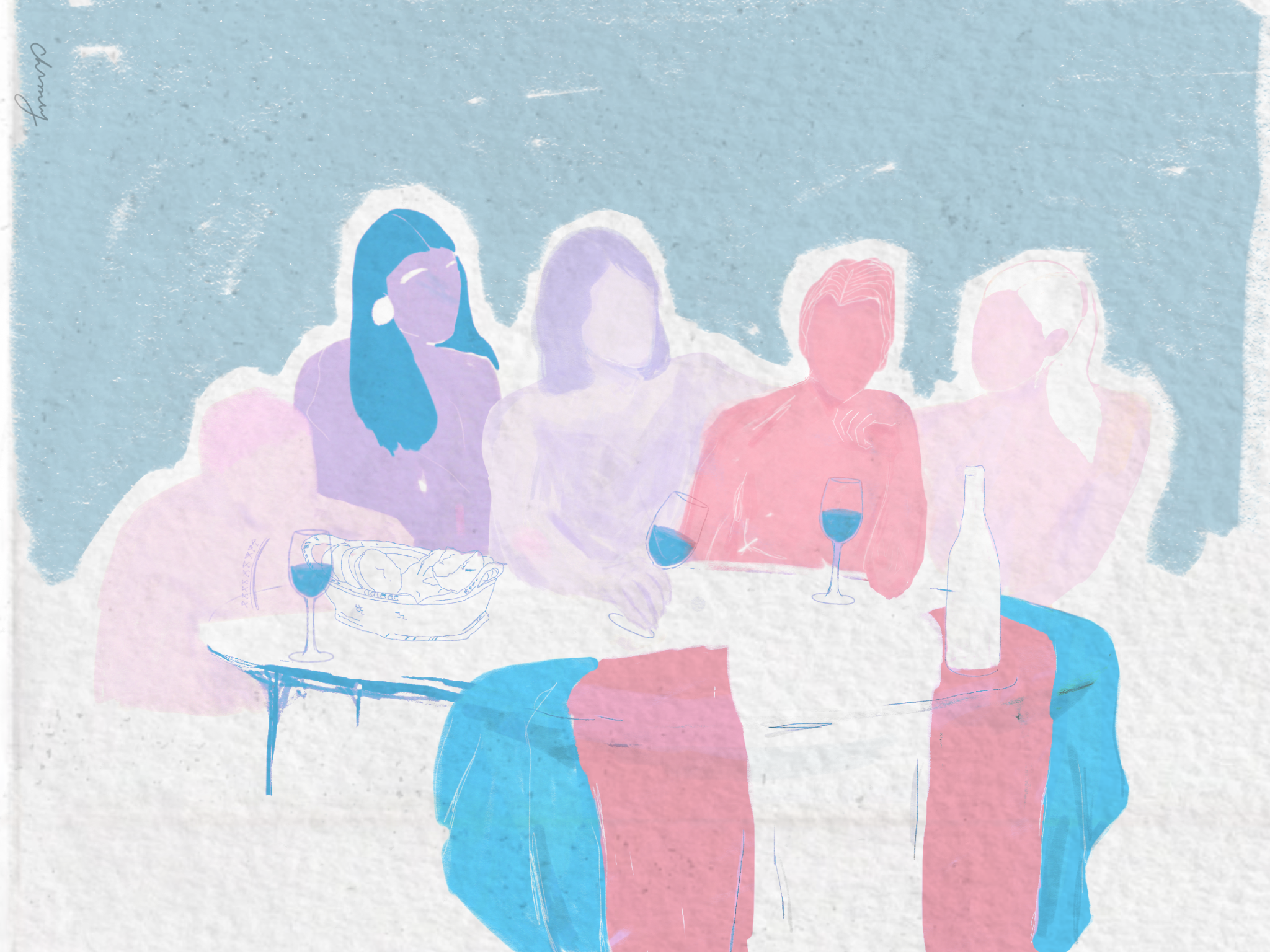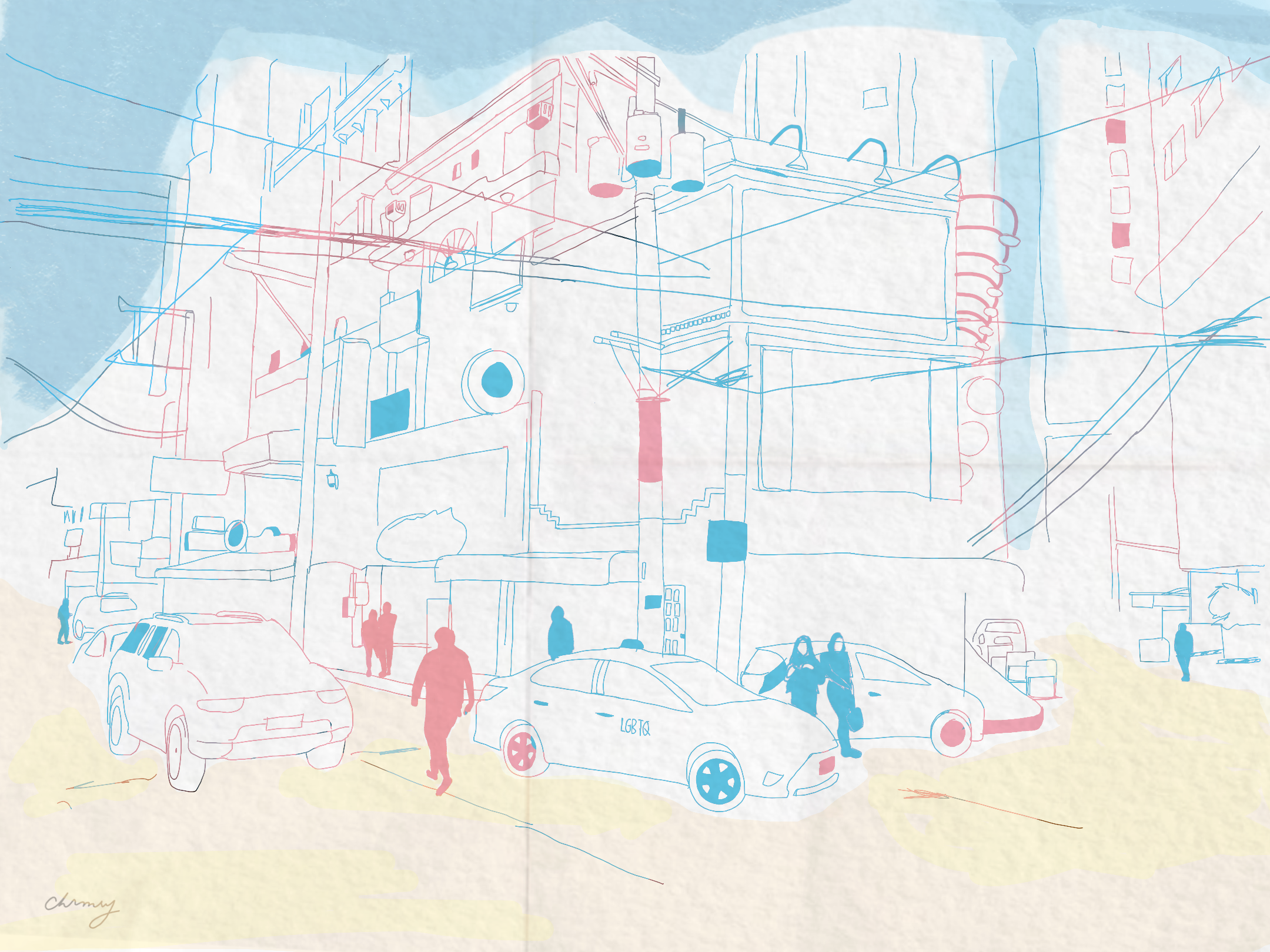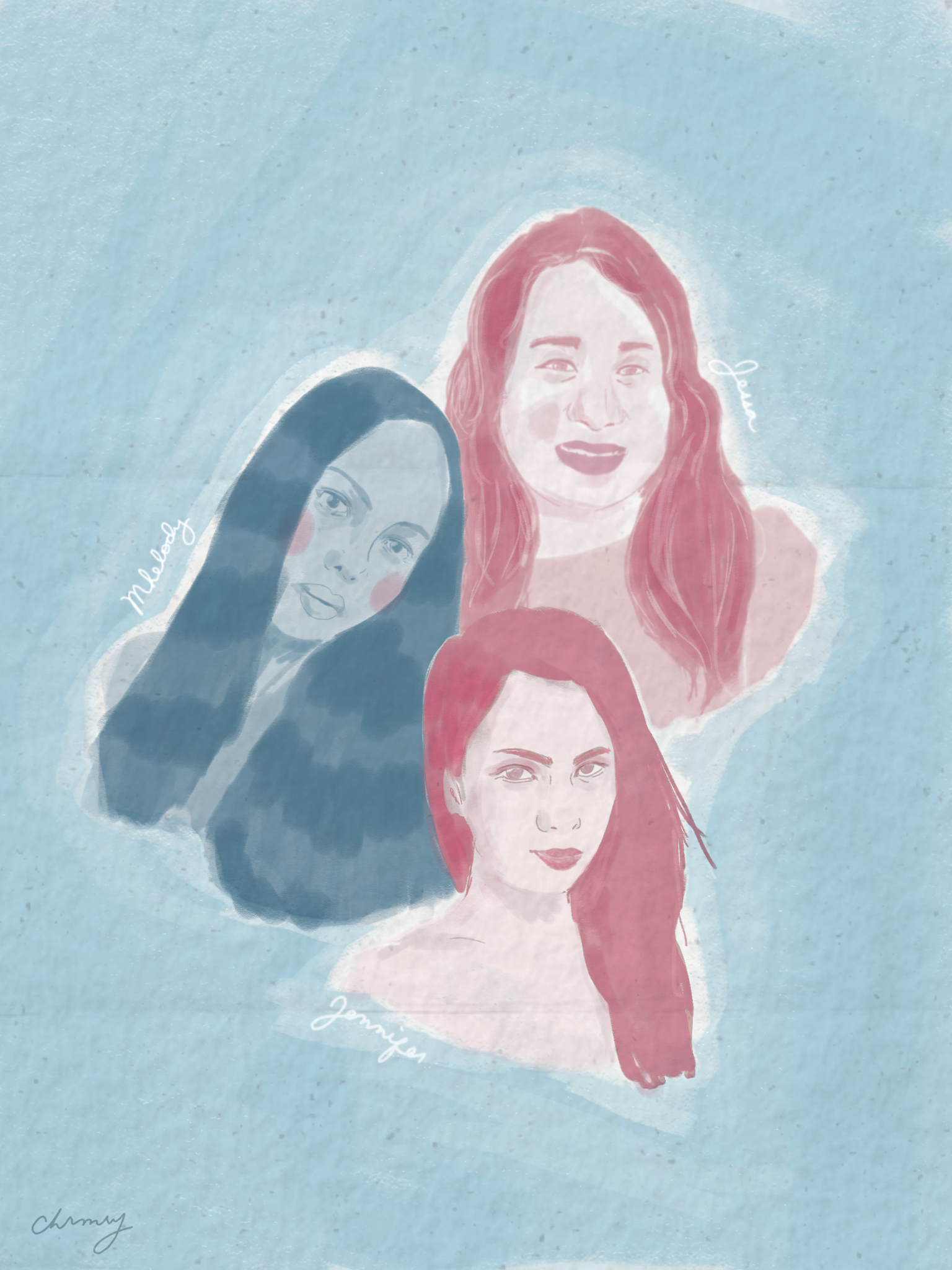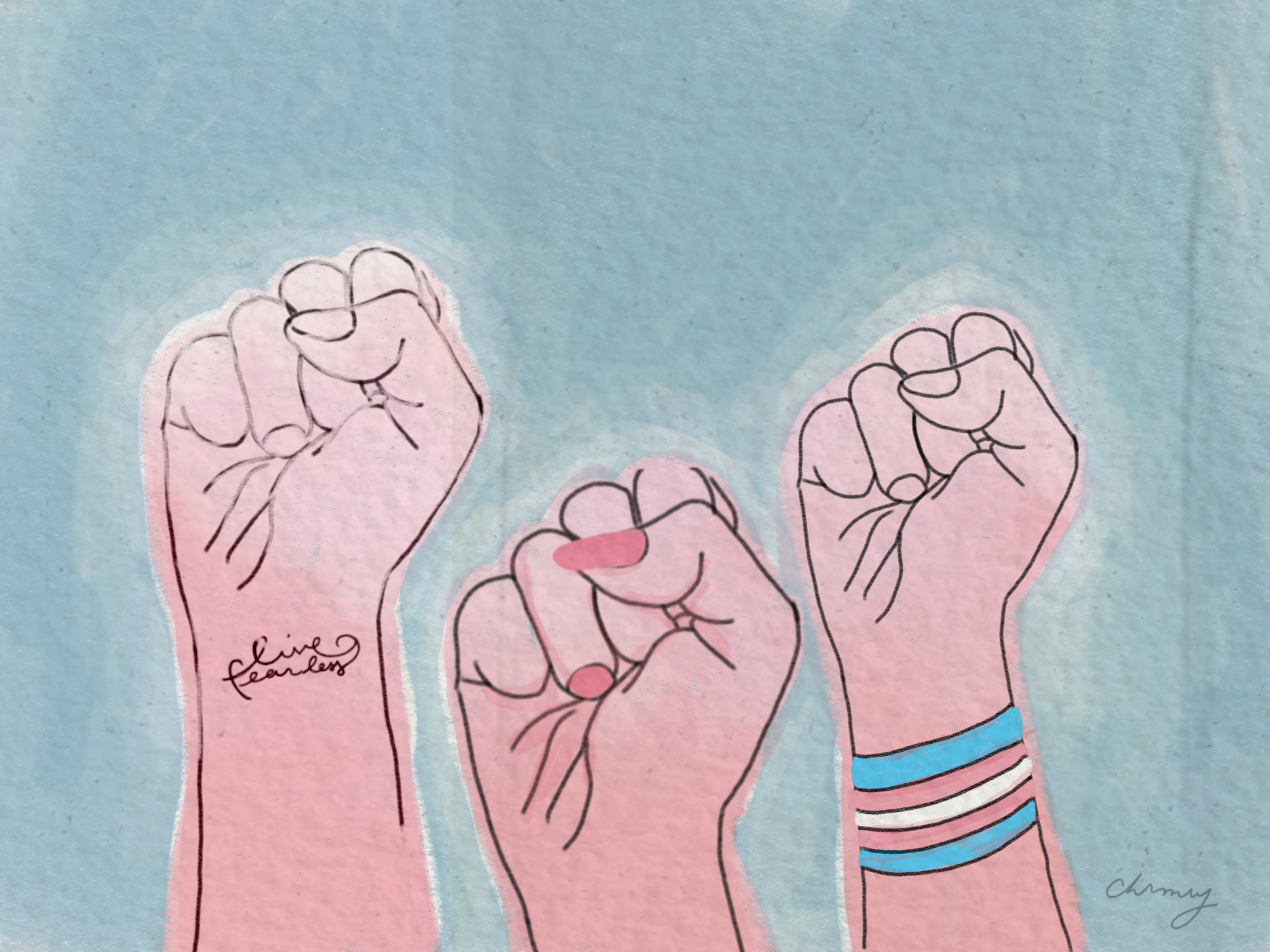A seat at the table: Why trans recognition in the Philippines remains lacking
MANILA, Philippines — During the 1973 Pride March in New York, transgender activists Marsha P. Johnson and Sylvia Rivera were promised a spot at the front of the parade. Come D-Day, they were put “way in the back someplace” instead.
“I had been promised a spot to speak,” said Rivera in the documentary The Death and Life of Marsha P. Johnson. “[So] I said, ‘Well, I’m gonna speak one way or the other’.”
Half a century later in the Philippines comes STRAP Kababaihan Philippines, Inc. or the Society of Transsexual Women of the Philippines – a transgender rights advocacy and support organization founded in 2002.
Mikee Inton-Campbell, an academic and one of STRAP’s board members, believes that to some extent, transgender people have been left behind by the very movement they helped create.
“Globally, and locally as well, the homonormative, cis, middle class gay and lesbian movement has eclipsed the call for the most basic of our rights and replaced them with marriage equality, adoption, etc.,” Campbell said in an email interview with INQUIRER.net on June 5. “Not that those aren’t important – they really are. But, in the Philippine context specifically, we don’t even have a law that protects our basic rights such as health, education, housing, and employment – the right to freedom from discrimination. I think that’s where it should begin.”

“Being a woman is being confident and strong enough to embrace her own idea of femininity, and not being afraid to go outside society’s expectations of being a woman.” —JN Torio
Our bodies, ourselves
Transgender: a wide-ranging term for people whose gender identity or gender expression differs from the biological sex they were assigned at birth. A study has proven that there are transgender people who become aware of their true gender as early as childhood, even without knowing the terminologies or politics of it. But this self-recognition does not necessarily translate to recognition from others, which results in some awful years growing up.
Such was the case for Stuart Barretto (22, trans man), Dawn Madrona (43, trans woman), JN Torio (22, trans woman), Josephine Bautista (25, trans woman), and Aryl Nabua (30, trans man), who recounted experiences and conveyed opinions in separate interviews with INQUIRER.net via Facebook Messenger on June 5.
“I realized since forever,” said Josephine, who became aware that she’s a girl since she was four years old. “There was no need to come out because I felt that [it] wasn’t something to be suppressed. It’s like, you just are.”
Stuart shares the same sentiment. “I never really came out to my immediate family because I never really ‘hid’ my identity,” he said. “I still liked doing ‘boy stuff’ as a kid.”
Aryl also knew early on that he’s a boy. First, he started mingling with the other boys, playing basketball. Then he started admiring girls. Before transitioning, he was worried about how his family would react.
“But when I took my first shot of testosterone, I felt that that was it – it’s what I really wanted for myself,” he said. “My worries disappeared when my family supported me to be my true self.”
There are transgender people who get acceptance from the people closest to them early on. But many others do not.
“My parents, some family members, and even some of my friends reminded me that they accept me for being gay as long as I don’t cross-dress,” JN said. “They believe that gay people can still be respectable if they still present themselves as men.”
Another unfortunate reality that trans people face every day is the need to conform and look “passable” as cisgender men or women (someone whose gender identity matches the sex they were assigned at birth) or at least “undetectable” so as not to be bothered or harassed.
“Most of the trans women I know, they’re real goal is to pass as ‘real’ women, for people to really see them as a ‘real’ woman,” JN said. “With social media, that’s easier to achieve.”
Dawn, too, admitted that others still see her as a gay man for not conforming to their standards of what makes a woman.
“The more you pass as a ‘real’ woman, the less difficult it is to be trans in the Philippines, so wherever I go, I always make sure that I conform to the public’s ‘standard’ to be seen as a woman.”
But JN insisted that this should not be the case. “If you’re trans, that’s what you’d want to achieve to somehow gain people’s respect, which is really sad for me because it’s like it has become a prerequisite.”
Related to this reality is the misconception that every transgender person wants to undergo hormone replacement therapy (HRT) or gender reassignment surgery. When Stuart first learned the word “transgender,” he was hesitant to use the word for himself because he did not feel like “a stereotypical trans man.”
“I felt that I wasn’t masculine enough, and I didn’t want to undergo HRT,” he said. “It doesn’t matter how masculine you are or if you don’t want to undergo HRT. As long as you know in your heart that you are a trans man, then you are one.”
“Transition is a decision for every transpinays,” said Dawn. “Some trans people transition by growing out their hair, putting on makeup, and dressing up like women – without undergoing HRT.” She added, “Transition is when I accepted, believed, identified, and realized that I’m a woman.”

“They say to be a real man is to have balls. Not at all. It’s a matter of respecting women. And if I succeed at that, I can succeed in everything else.” —Aryl Nabua
Safe spaces
Things that others take for granted do not come easy for trans people. “I always get very anxious every time I have to go to a public toilet,” said JN. “When I go to public places, I always look for a gender-neutral toilet just to pee.”
READ: Transgender woman in women’s comfort room causes stir in QC mall
Getting a haircut can turn political, too, as evidenced by Stuart’s experience at barbershops.
“I tried to argue that what I got was obviously a typical ‘men’s cut,’ but they just told me, ‘Kaya po lady’s cut kasi babae po kayo,’” shared Stuart. “When she said that, I just gave up and let them overcharge me.”
He added, “It might not seem like a big deal for cisgender people, but to a lot of trans people, going to a barbershop or a salon gives us anxiety. Wearing our hair the way we like is a big deal, and there needs to be more safe spaces for us to have a haircut.”
But the internet presents hope and freedom – to a certain degree – since it promises easy human connections. Josephine, for example, has found support online, having met people from the world over who respect and understand her.
When it comes to online dating, however, it becomes far more challenging for trans people.
Stuart notes he still tags himself as a “woman” on dating apps because users, especially cisgender heterosexual women, refuse to see him as a man. “They think they will become lesbians when they date a trans man but really, they’re still straight even if they date a trans man.”
JN also shared that back when she tried dating apps, some guys would assume that she’s a cisgender woman and would strike up conversations with her. “But when it was time for me to share that I’m trans, they immediately say that they’re not into trans girls and they block me right away,” she said. “It happened to me a lot and I just couldn’t take it anymore.”
Naomi Fontanos of Gender and Development Advocates (GANDA) Filipinas – a nonprofit, nonpartisan, and nongovernment organization led by trans women advocating gender equality for Filipinos – said in an email interview with INQUIRER.net on June 7 that trans people remain unsafe both out in public and on social media.
“My sense is that trans people’s discrimination and violence offline follow us online,” she said. “Those who hate you will have a way of finding you and subjecting you to their prejudice.”

“Women come in different sizes and shapes, and shouldn’t be limited and reduced by what’s between our legs. It is how you identify yourself and how you want to live your life.” —Dawn Madrona
Old and new problems
With the pandemic causing communities, cities, and countries to enforce lockdowns, new problems arise for transgender people. Aside from concerns shared by most – health, safety, employment, and economic security, many trans people were faced with tougher issues: for instance, access to gender-affirming healthcare and constant threat of domestic abuse.
“Because many of our sisters have lost their jobs, they can no longer afford to buy hormones for their HRT,” said Campbell, while domestic abuse often “becomes a big problem because they can’t go outside and they have nowhere to go.”
“We don’t have trans- or LGBTQ-specific shelters that can help them,” she added.
READ: QC reopens protection center amid rise in domestic violence during lockdown
Six years after the killing of trans woman Jennifer Laude, transgender people continue to fall prey to hate crimes. Just last year, there were the murders of Jessa Remiendo and Mhelody Polan Bruno. And until now, the country’s dated penal code still does not give them protection.
“For example, rape can only be done to someone who is assigned female at birth, [so] a trans woman who suffers the same crime has no legal way of seeking justice,” Campbell pointed out. “She can only file charges of sexual assault, which carry a lighter sentence.”
Under the Revised Penal Code, rape committed against females is punishable by reclusion perpetua. If the victim is a man or a trans woman, the penalty is only prision mayor or six to 12 years in jail.
While Fontanos recognizes the efforts made to make the Philippine National Police (PNP) more gender-sensitive, both she and Campbell believe that much remains to be done.
Campbell, for one, thinks the PNP is not equipped to properly monitor hate crimes against transgender people.
“When these crimes happen to trans people, they are not reported to authorities as having happened to trans persons. The vernacular is used, so it will be either bakla or tomboy,” said Campbell.
READ: ‘Oplan X-Men’ of the Makati police angers LGBTQI community
Campbell also faulted some members of the media for lacking education on basic gender politics. “Often, the victims [are] misgendered. [Their] legal names are used, so it’s like there’s another layer of violence laid on to the victim.”
Revolution now
Aside from a revision of the penal code, what Campbell, Fontanos, and other members and allies of the LGBTQIA+ community demand is the passage of the SOGIE (or sexual orientation, gender identity, and gender expression) bill, which aims to provide equal protection for everyone.
To date, 13 SOGIE bills remain pending in the lower house after it faced a dead end in the Senate during the 17th Congress.
READ: ‘Huwag tayong hypocrite’: Push for SOGIE bill continues in House
Another law that is of primary importance to transgender people is one for legal gender recognition.
“So many trans people get rejected by employers because their gender presentation does not match their identity documents,” Campbell said.
“Many trans people feel doubly victimized when they go through the police or the justice system that would insist on using our legal names and gender and the pronouns attached to them,” added Fontanos.
Under the Republic Act No. 9048 or Clerical Error Law of 2001, correction involving a change of sex of petitioner is prohibited. At present, there is no bill of such kind pending in Congress.
READ: Is Laude a he or a she? Even SC is confused
“The pandemic has changed the very landscape in which we do our activism,” said Campbell, pertaining to the world’s swift shift to digital in the past few months. Stressing the importance of visibility and activism – both online and offline – Fontanos said, “People have reasons why they are active online or in the streets and we have to appreciate all forms of advocacy work as valid, whether in the streets, in the halls of power, or on social media.”
“We have to leverage the power of street activism and online activism so that it leads to real badly needed structural change in society,” Fontanos added.
Metro Manila Pride canceled in-person events for this year’s Pride due to the pandemic, but online events have been set.
Campbell, in addition, believes that what the community needs is “a memorializing of its history,” citing a dearth of works of art, music, and writing on trans activism in the country.
READ: Call PJ Raval’s ‘Call Her Ganda’ riveting
She also cautions about the kinds of representation that are made visible to the masses. “I very strongly believe that trans voices need to be amplified, and that trans advocacy and research should be done by trans people, rather than having cis people try to study us.”
Fontanos agrees. “I think trans activism is impaired when the voice, agency, and participation of trans people are diminished especially in leadership or decision-making roles in the community. This has to be remedied by making sure organizations provide trans people the space to be leaders and decision-makers in the movement.”
For them, empowered trans people in academia, media, politics, business, and the arts will give members of their community the courage to further speak up, tell their stories, and demand what is due them.
And Sylvia Rivera couldn’t have summed up the struggle any better if she merely flinched during that historic New York Pride March nearly 50 years ago.
“I’ve been trying to get up here all day… [But] you all tell me to go and hide my tail between my legs. I will not put up with this s**t. I have been beaten. I have had my nose broken. I have been thrown in jail. I have lost my job. I have lost my apartment for gay liberation. And you all treat me this way? What the f**k’s wrong with you all? Think about that.
“I believe in the gay power. I believe in us getting our rights, or else I would not be out there fighting for our rights. That’s all I wanted to say to [you], people.”
KGA
OF TRANS PEOPLE, BY TRANS PEOPLE, FOR TRANS PEOPLE. STRAP is putting together an anthology of trans writings and artwork called TransPilipinas Anthology, and members of the community are encouraged to contribute and share their stories. They are also working with the AIDS Society of the Philippines to raise funds for community members in need during the pandemic.
Artwork by CHERMARY PANGA
